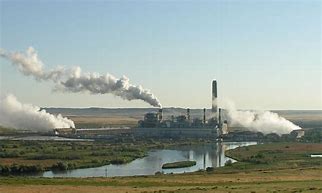-
US EPA unveils proposed new rules aimed at GHG emissions
Date posted:
-
-
-
Post Author
Patrick LaveryCombustion Industry News Editor
-
-

Proposed new rules aimed at limiting emissions from coal and gas fired power plants have been unveiled by the United States Environmental Protection Agency.
Last year, the Supreme Court passed a ruling limiting the EPA’s ability to set emissions limits. The new rule has been crafted accordingly, for the first time directly regulating emissions of carbon dioxide from existing power plants. According to the Financial Times, the new rule contains standards that relate to carbon capture and storage and low/zero hydrogen fuel, something that would tie in with the generous tax credits available for the use of such technologies.
However, while the electric power sector produced 1.5 billion (metric) tonnes of CO2-equivalent emissions last year, only 617 million tonnes are expected to be saved by the new rule up until 2042, suggesting the rule will have limited practical effect. Nevertheless, the new rule has been met with strong opinions. Dan Lashof, the US director of the environmentally-focused World Resources Institute, welcomed the rule by saying that the “proposed rule sends an unequivocal signal to American power plant operators: the era of unlimited carbon pollution is over”. In a clear break from oil and gas companies, the coal-based National Mining Association said that mandating CCS “before this technology is technically and fully economically demonstrated is nothing more than unlawful showmanship reinforcing a destructive agenda”.
Democrat Senator Joe Manchin, of the coal mining state of West Virginia, reacted to the new rule by saying that “This administration is determined to advance its radical climate agenda and has made it clear they are hell-bent on doing everything in their power to regulate coal- and gas-fuelled power plants out of existence, no matter the cost to energy security and reliability.” He pledged to block every nomination to the EPA in protest against the rule.
